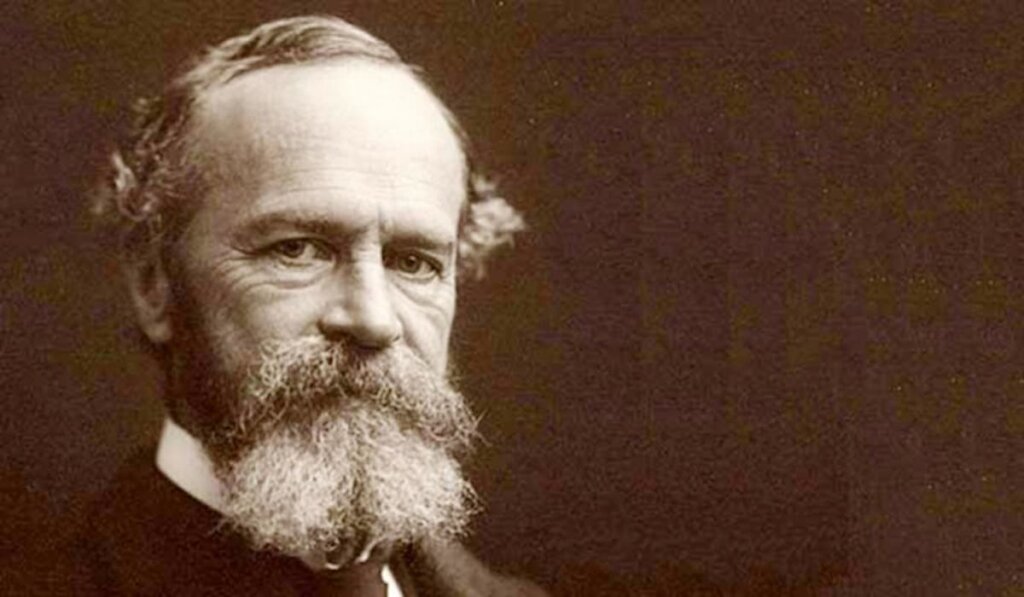How to Combat Passivity, According to William James


Written and verified by the psychologist Valeria Sabater
According to William James, to combat passivity, we first need to understand where the energy of the human being comes from. Such a dimension doesn’t come from the spiritual plane. It comes from the body and the mind. James, the father of American psychology and pioneer of scientific study in the psychological field claimed that these don’t perform in the same way every day.
In fact, there are energies that are sometimes not present. They may lie dormant due to discouragement, disaffection, and mere physical exhaustion. However, stillness and lack of initiative almost always have at their origin, the temple of the mind, of the psychological. William Faulkner explained it in a nutshell: “I am tired of running, of having to carry my life as if it were a basket of eggs”.
At times, you feel exhausted by your existential complexity. Everything seems too fragile, your hopes are easily shattered, and your dreams all too often turn into disappointments. Indeed, it’s difficult to keep your mental and physical resources at 100 percent. However, there are certain mechanisms that can help you.
“It is our attitude at the beginning of a difficult task, which, more than anything else, will affect its successful outcome.”
-William James-

How to combat passivity according to William James
According to William James, the mechanism to combat passivity requires the awakening of self-awareness and willpower. This might seem complex, but it’s worth knowing what William (the brother of the renowned writer Henry James) argued. It was in 1906 at Columbia University that he gave his famous address to the American Philosophical Society.
James explained that passivity is like a self-feeding illness. When it arrives, and you don’t recognize its symptoms, it’s capable of blurring all your purposes and motivation by simply taking over. The physical and mental exhaustion you feel leads to boredom. After this, comes the vicious cycle of anxiety and procrastination.
He called his speech “The Energies of Men”. In this, he insisted that many of us live as if we’re in a kind of cloud that weighs on our being and blurs everything. He claimed that we’ve lost the clarity of discernment. In this state, both the muscle of attention and the ability to see things as they are become weakened. This is all due to mental passivity.
Deliberate life through willpower
According to William James, to combat passivity, you must emerge from these mental mists and master all your physical and psychological resources. In order to do this, you need to activate your willpower and be capable of leading a deliberate life, oriented to meaning and purpose.
Few dimensions are more relevant in the field of psychology than willpower. Dimensions such as self-esteem, resistance to frustration, motivation coexist in willpower. However, how do you reawaken your willpower when it fails due to discouragement or apathy?
James claimed that to combat passivity, maximum attention must be developed. This area of the mental stratum was something to which he devoted much of his research and of which he spoke in his famous work, The Principles of Psychology (1890).
James stated attention was that process by which the mind vividly and clearly takes possession of those thought processes that are valuable and useful.
“And the faculty of voluntarily bringing back a wandering attention, over and over again, is the very root of judgment, character, and will. No one is compos sui if he have it not. An education which should improve this faculty would be the education par excellence.”
-William James-

Yoga can be useful to combat passivity
Interestingly, William James defended the practice of yoga in his book, Varieties of Religious Experience (1902). According to him, this traditional discipline favored immediate luminosity to the mind, developed philosophical rationality, and possessed great moral utility.
In reality, the father of scientific psychology and renowned philosopher at Harvard University was a great fan of yoga and didn’t hesitate to study its benefits. In fact, he claimed it was a useful resource for combating passivity. That’s because:
- Yoga allows us to train the focus of our attention and direct our minds to what’s relevant. Only then do we clarify our purposes and vital meanings and activate our motivation.
- Likewise, yoga allows us to break through the barriers of routine and emerge from the layers of inactivity, boredom, and stillness in which it’s so easy to get caught, according to James. Hence, when we visualize what’s important and meaningful to us, we put aside passivity.
This extremely interesting argument that William James left us in his speeches and works was forgotten or displaced with the arrival of psychoanalysis. In fact, for Freud, human behavior was governed only by unconscious impulses. Consequently, there was no place in his theory for attention or force of will.
Fortunately, we’ve now recovered many of those principles from the father of American psychology…
All cited sources were thoroughly reviewed by our team to ensure their quality, reliability, currency, and validity. The bibliography of this article was considered reliable and of academic or scientific accuracy.
- Fierro, Catriel. (2013). “Principios: la relevancia de William James en la enseñanza de la historia de la psicología”. Eureka (Asunción) en Línea, 10(1), 96-104. Recuperado em 17 de novembro de 2021, de http://pepsic.bvsalud.org/scielo.php?script=sci_arttext&pid=S2220-90262013000100011&lng=pt&tlng=es.
- James, William (1902) Las variedades de la experiencia religiosa. Equipo Difusor del Libro
- James, William (1890) Principios de psicología. Fondo De Cultura Economica
- Orozco, José Luis (2003). William James y la filosofía del siglo americano. Barcelona: Gedis
- Salas Ortueta, Jaime de & Martín Félix (2005). Aproximaciones a la obra de William James: la formulación del pragmatismo. Madrid: Biblioteca Nueva
This text is provided for informational purposes only and does not replace consultation with a professional. If in doubt, consult your specialist.








